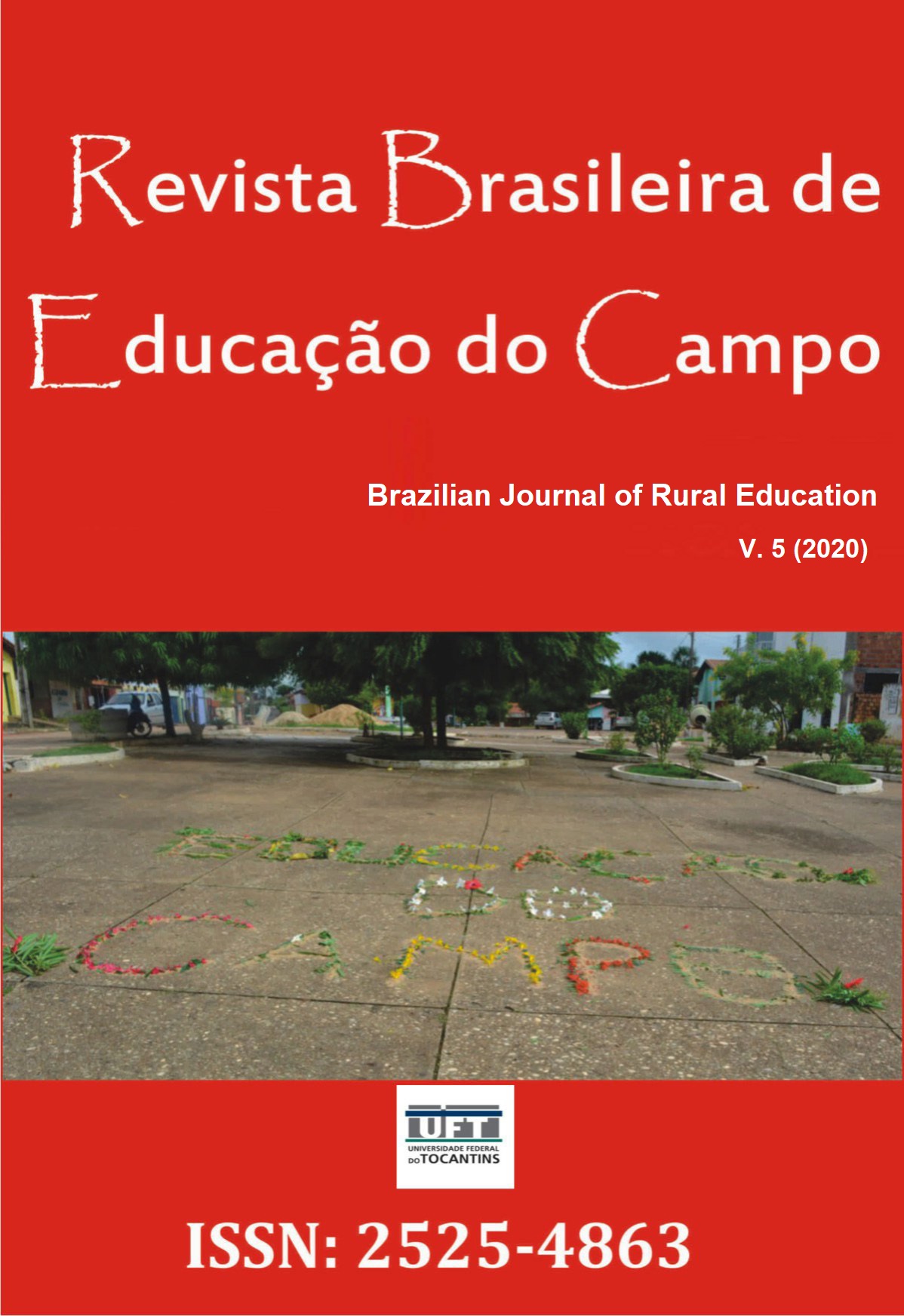Youth and Adult Education in the countryside and education policies: achievements from the social movements
DOI:
https://doi.org/10.20873/uft.rbec.e10676Abstract
Abstract: This paper discusses Rural Education and its relation with the field social movements, from the education reality in a settlement of the Landless Rural Workers’ Movement. Its starting point is the school processes related to the Youth and Adult Education in the countryside, considering the education policies registered in the documents that guide the teaching practices carried out in the routine of the field school. It is based on the conception of education and school for Rural Education and the MST pedagogical practices, that is, pedagogical and philosophical principles that support the fight for land and for the right to education within this field social movement. The study problematizes the documents produced by the Education Secretariat of the State of Paraná, the materials produced by the MST and the academic production on Rural Education and Youth and Adult Education. Finally, the results point out the government’s disregard with the Rural Education and evidences that with the advent of social movements, a strong pro-education movement appeared in Brazil, one which fights for the guarantee of the rights of the peasants, the waters and the forests.
Downloads
References
Alvarenga, M. A. (2007). Educação de Jovens e Adultos: percursos dialógicos em face às desigualdade. In Gracindo, R.V. et al. (Org.). Educação como exercício de diversidade: estudos em campos de desigualdades sócio-educacionais (pp. 25-39). Brasília: Líber Livro.
Arroyo, M. G.(2006). Formar educadoras e educadores de jovens e adultos. In Soares, L.
Formação de educadores de jovens e adultos (pp. 17-32.). Belo Horizonte, MG: Autêntica.
Benjamin, C., & Caldart, R, S. (2000). Projeto popular e escolas do campo. Vol. 3. Brasília: Fundação Universidade de Brasília.
Lei n. 9.394, de 20 de dezembro de 1996. (1996, 23 de dezembro). Estabelece as Diretrizes e Bases da Educação Nacional. Recuperado de: http://www.planalto.gov.br/ccivil_03/leis/l9394.htm
Diretrizes operacionais para a educação básica nas Escolas do Campo, de 3 de abril de 2002. (2002, 9 de abril). Institui Diretrizes Operacionais para a Educação Básica nas Escolas do Campo. Recuperado de: http://portal.mec.gov.br/cne/arquivos/pdf/CEB012002.pdf
Caleffe, L. G., & Moreira, H. (2006). Metodologia da pesquisa para o professor pesquisador. Rio de Janeiro, RJ: DP&A.
Camini, L. (2006). Reformas do Estado e Construção das Políticas Educacionais no Rio Grande do Sul no período de 1999-2002: avanços, limites e contradições.. In: PERONI, V.M.V., Bazzi, V,L. & Pegoraro, L. (Org.). Dilemas da Educação Brasileira em tempos de Globalização Neoliberal: entre o público e o privado (pp. 59-94). 1ª ed. Porto Alegre, RS: UFRGS Editora, 2006.
Carnoy, M. (1984). Educação, Economia e Estado (base e superestrutura, relações e mediação). São Paulo: Cortez.
Comparato, B. K. (2001). A ação política do MST. São Paulo em Perspectiva, 15(4), 105-118.
Fernandes, B. M.(1996). MST - Formação e territorialização. São Paulo, SP: Hucitec.
Morissawa, M. (2001). A História da luta pela terra e o MST. São Paulo, SP: Expressão Popular.
Paraná. (2006a) Secretária de Educação; Diretrizes Curriculares da Educação do Campo. Curitiba, PR: SEED.
Paraná. (2006b) Secretária de Educação; Diretrizes Curriculares da Educação de Jovens e Adultos. Curitiba, PR: SEED.
Scherer-Warren, I. (1989). Movimentos Sociais: um ensaio de interpretação sociológica. Florianópolis,SC: Editora USFC.
Schimanski, E.F. (2007). Conservadorismo e tradição em Ponta Grossa: representação social, mito ou realidade na polícia local? (Dissertação de Mestrado). Universidade Estadual de Ponta Grossa, Ponta Grossa.
Troguilho, J. C. (2005). A luta pela terra no município de Ponta Grossa-PR, (Monografia de Graduação). Universidade Estadual do Rio Grande do Sul.
Published
How to Cite
Issue
Section
License
Proposal for Copyright Notice Creative Commons
1. Policy Proposal to Open Access Journals
Authors who publish with this journal agree to the following terms:
A. Authors retain copyright and grant the journal right of first publication with the work simultaneously licensed under the Creative Commons Attribution License that allows sharing the work with recognition of its initial publication in this journal.
B. Authors are able to take on additional contracts separately, non-exclusive distribution of the version of the paper published in this journal (ex .: publish in institutional repository or as a book), with an acknowledgment of its initial publication in this journal.
C. Authors are permitted and encouraged to post their work online (eg .: in institutional repositories or on their website) at any point before or during the editorial process, as it can lead to productive exchanges, as well as increase the impact and the citation of published work (See the Effect of Open Access).















